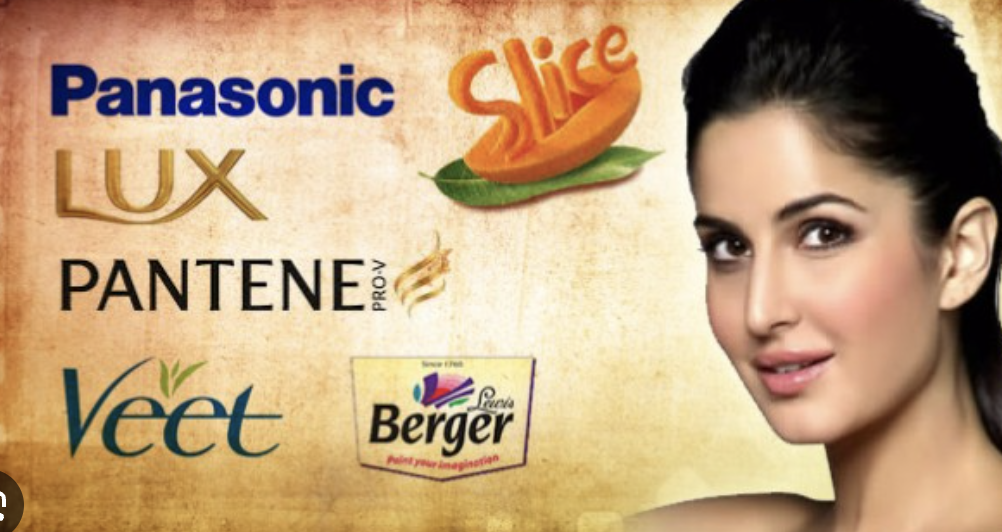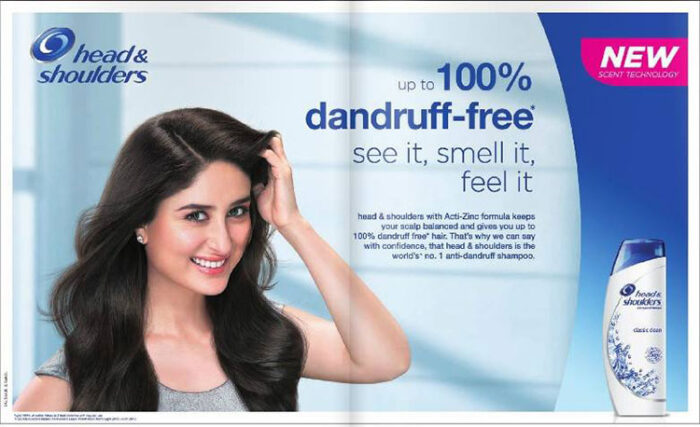Ever wondered why your favorite athlete is suddenly promoting a new car, or why a Bollywood star seems to love every brand they advertise? Celebrity endorsements are a massive force in television advertising, but how effective are they really? This strategy leverages the fame, charisma, and influence of celebrities to promote products and services.
Celebrity endorsements in TV Advertisements leverage the star power and public appeal of well-known figures to create a persuasive impact on the audience. This practice not only enhances brand visibility but also builds credibility and emotional connections with consumers. By examining the dynamics and psychological underpinnings of celebrity endorsements, we can gain a deeper understanding of their influence on consumer behavior and the overall effectiveness of advertising campaigns.
The Power of Celebrity Endorsements
Celebrity endorsements significantly influence consumer behavior by leveraging the celebrities’ popularity, credibility, and relatability. Consumers often admire and trust celebrities, which can translate into a positive perception of the endorsed products. This phenomenon, known as the “halo effect,” leads people to associate the positive qualities of the celebrity with the product. Psychologically, endorsements create emotional connections and aspirational desires, making consumers more likely to purchase endorsed products to emulate the celebrity’s lifestyle. Additionally, celebrities’ endorsements can enhance brand visibility and credibility, leading to increased consumer trust and loyalty. This psychological impact capitalizes on the social proof and aspirational aspects, making celebrity endorsements a powerful marketing tool.
Types of Celebrity Endorsements
1. Product-Based Endorsements

Definition: In product-based endorsements, celebrities are directly associated with a specific product or brand. They appear in advertisements, such as TV commercials, using or promoting the product, often highlighting its features and benefits.
Purpose: The goal is to leverage the celebrity’s popularity and influence to make the product more appealing to consumers. By associating a well-known figure with the product, brands aim to transfer the positive attributes and credibility of the celebrity to their product.
Examples of Product-Based Endorsements
Cricketers endorsing sports gear: Virat Kohli with Puma cricket equipment.
Bollywood actors promoting beauty products: Deepika Padukone for L’Oréal Paris cosmetics.
2. Cause-Related Endorsements

Definition: Cause-related endorsements involve celebrities supporting social, environmental, or charitable causes. These endorsements often appear in public service announcements or campaigns where celebrities advocate for a particular cause or organization.
Purpose: This type of endorsement is used to raise awareness and drive action for important issues. Celebrities lend their voice and influence to causes they are passionate about, helping to draw attention and support from a broader audience.
Examples of Cause-Related Endorsements
Environmental conservation: Dia Mirza advocating for wildlife conservation and sustainable living practices.
Health awareness: Amitabh Bachchan promoting campaigns for hepatitis awareness and prevention.
3. Testimonial Endorsements

Definition: Testimonial endorsements feature celebrities sharing their personal experiences and satisfaction with a product or service. Unlike product-based endorsements, testimonials are more personal and involve the celebrity recounting how the product has positively impacted their life.
Purpose: The authenticity and personal touch of testimonials can be highly persuasive. Consumers are more likely to trust a product when they hear a credible, relatable story from someone they admire.
Examples of Testimonial Endorsements
Health and wellness: Shilpa Shetty endorsing yoga and fitness routines, sharing her personal experiences with their benefits.
Technology: Shah Rukh Khan sharing his positive experiences using Samsung smartphones and highlighting their features in advertisements.
Benefits of Celebrity Endorsements in TV Advertising
1. Increased Credibility and Trust
Celebrity endorsements in TV advertising bolster brand credibility and trust by leveraging the established reputation of the celebrity. Consumers tend to trust products endorsed by celebrities they admire, leading to increased confidence in the brand’s quality and reliability. This trust can positively influence purchasing decisions, as consumers perceive the endorsement as a stamp of approval from someone they respect, thereby enhancing the brand’s reputation and credibility in the marketplace.
2. Enhanced Brand Awareness
Celebrity endorsements in TV advertising significantly boost brand awareness by leveraging the celebrity’s fame and extensive reach. The presence of a well-known figure in advertisements attracts attention and sparks interest among consumers. This heightened visibility ensures that the brand’s message reaches a wider audience, potentially increasing consumer recall and recognition. As a result, the brand becomes more top-of-mind, which can lead to increased sales and market share as consumers are more likely to consider and choose the endorsed product over competitors.
3. Affective Bonding
Celebrity endorsements in TV advertising foster effective bonding by creating emotional connections with consumers. Celebrities often evoke positive emotions and admiration among their fan base, which transfers to the endorsed product. This emotional connection can influence consumer behavior, leading to increased affinity and loyalty towards the brand. Consumers may feel a personal connection to the product through their admiration for the celebrity, making them more likely to purchase and advocate for the brand, thereby strengthening brand-consumer relationships.
4. Differentiation and Competitive Edge
Celebrity endorsements in TV advertising provide differentiation and a competitive edge by making a brand stand out in a crowded marketplace. Associating a celebrity with a product or service helps differentiate it from competitors and enhances its perceived uniqueness. The celebrity’s persona and reputation can give the brand a distinct identity that resonates with consumers. This differentiation can attract attention, increase brand recall, and ultimately drive consumer preference and loyalty, thereby contributing to the brand’s competitive advantage.
5. Effective Communication of Brand Values
Celebrity endorsements in TV advertising effectively communicate brand values by aligning with the celebrity’s image and persona. Celebrities often embody certain characteristics or values that resonate with their fan base. When they endorse a product on TV, it reinforces these values and attributes to consumers. This alignment helps in shaping the brand’s identity and positioning in the minds of consumers, ensuring that the brand message is communicated clearly and authentically. It enhances brand perception and can attract consumers who share similar values, thereby strengthening brand affinity and loyalty.
Measuring the Effectiveness of Celebrity Endorsements
Measuring the effectiveness of celebrity endorsements in TV advertising involves several key points:
1. Brand Awareness and Recall
Evaluate changes in brand recognition and recall among consumers following the endorsement. Surveys and studies can assess how well consumers remember the brand and its association with the celebrity.
2. Consumer Attitudes and Perception
Conduct research to understand shifts in consumer attitudes towards the brand post-endorsement. This includes perception of brand values, trustworthiness, and overall image improvement.
3. Sales Impact
Analyze sales data before, during, and after the endorsement campaign to quantify any increase in product sales or revenue directly attributed to the celebrity endorsement.
4. Social Media Engagement
Monitor social media metrics such as follower growth, engagement rates, and sentiment analysis to gauge the impact of the endorsement on digital platforms.
5. Return on Investment (ROI)
Calculate the ROI by comparing the cost of the endorsement with the revenue generated or brand metrics improved as a result of the campaign. This helps assess the financial effectiveness of the celebrity endorsement strategy.
Are you looking for Television Advertising? Checkout The Media Ant, expert in Television Advertising in India. Explore now!
FAQs on Celebrity Endorsements in TV Advertising
1. What is an example of celebrity endorsement?
An example of celebrity endorsement is when a famous person promotes a product or service, leveraging their public image to enhance brand visibility and credibility. For instance, a renowned athlete appearing in a commercial for sports shoes is a classic celebrity endorsement.
2. What is celebrity endorsement in India?
In India, celebrity endorsement refers to famous personalities from various fields, such as Bollywood actors, cricketers, and even politicians, endorsing products or services in advertisements to capitalize on their popularity and influence among the diverse Indian consumer base.
3. What are the characteristics of celebrity endorsement?
Characteristics of celebrity endorsement include leveraging the celebrity’s fame, credibility, and influence to enhance brand visibility and consumer trust. It involves aligning the celebrity’s image with the brand’s values and target audience, aiming to increase sales and brand loyalty through association.
4. Who was the first celebrity endorsement?
The first recorded celebrity endorsement dates back to the late 18th century when Josiah Wedgwood, a renowned English potter, received a royal endorsement from Queen Charlotte, wife of King George III. This royal endorsement boosted Wedgwood’s reputation and sales significantly.
5. What are the three models of celebrity endorsement?
The three models of celebrity endorsement are:
Implicit: Celebrities use products in public without direct endorsement.
Endorsement: Celebrities publicly endorse products or services in advertisements.
Co-creation: Celebrities collaborate with brands to create and promote products, leveraging their influence and expertise for mutual benefit.





